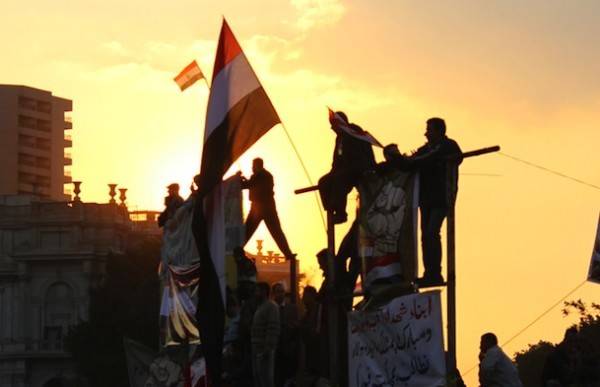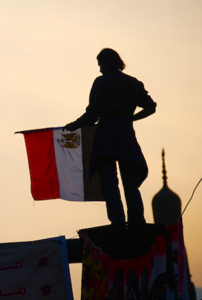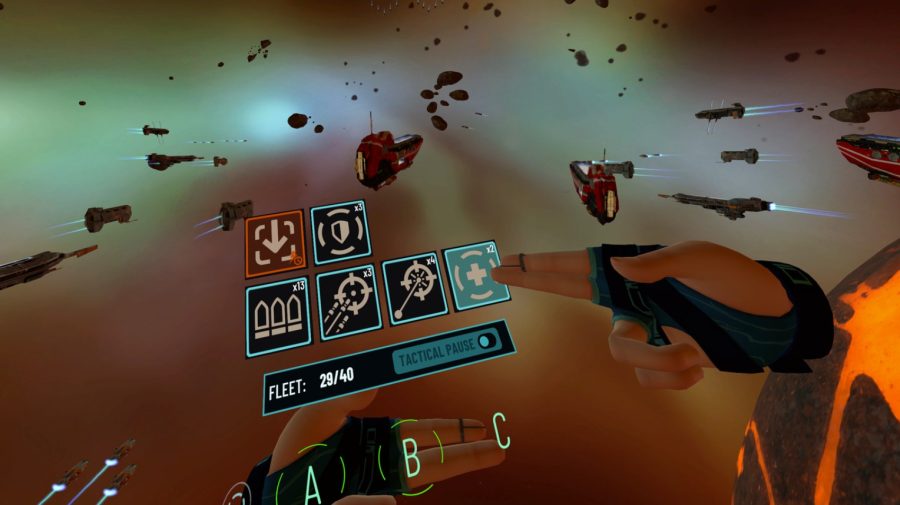

Guest author Ahmed Zidan lives in Egypt and is the editor of Mideast Youth. The Egyptian protesters have overthrown Mubarak after nearly 30 years. Egypt has come second in row after Tunisia. The two revolutions, the Tunisian and the Egyptian, have succeeded. Egypt has seen its first people’s revolution, and over 18 days many things changed until the regime was totally uninstalled.
Let’s trace the protests back across the Mediterranean. The self-immolation of Mohamed Bouazizi in Sidi Bouzid was the spark for the massive Tunisian protests that overthrew then-president Ben Ali. The Tunisian protests, in turn, were the spark for Egypt’s #Jan25. And it’s very relevant to name it #Jan25, because it was totally Internet driven. (Other names include the Jan. 25 Revolution, Revolution of Anger, and lately Tahrir Revolution, an Arabic equivalent for Revolution of Liberation.) It’s not an overstatement to say that #SidiBouzid is the sole parent of #Jan25, and created a domino effect that will not stop in Egypt.
Mideast Youth was hacked after an attack by anti-Kurdish groups. This came as a result of a video we recently launched promoting the Kurdish cause for human rights, as well as writing about the upcoming Kurdish demonstrations, which was apparently the final straw for these hackers.
If you know anyone who can help, please get in touch by email, or you can also donate to help us make the move to new servers affordable.
This is the first organized revolution of its kind in the history of mankind. It began with a Facebook page We Are All Khaled Said that called for this uprising. The social media tools were very critical in sparking these protests; the Internet is unmistakably the origin of the Egyptian protests. And once it broke loose, the Internet proved to be a very important tool for sharing news about the different demonstrations around Egypt.
However, momentum was already building and the Egyptians already knew their route to the streets. That’s why when the Internet was blocked around the country in the early hours of Jan. 28, as well as a total blackout on all mobile networks, it never affected the ongoing protests and actually backfired on the government: netizens marched into the streets instead of checking Twitter trends online.

The freedom of the Internet is a major headache for totalitarian regimes around the world, and that’s why they all emulate the same violations against freedom of expression. By and large, it would be very fair to name the Egyptian Revolt as the first Internet Revolution of the era.
Lead photo and sunset photo Flickr CC by Omar Robert Hamilton
The world has been watching Egypt’s revolution closely; there were many twists and turning points similar to what happened in Tunisia. The major historic events include:
Stay tuned to Egypt’s voice on CrowdVoice to get updates around the clock about the Egyptian Revolution.
- Day of Anger, Tuesday, Jan. 25. The warm up to the protests: The day that commemorates the National Day of Police, whose unlimited power was a key point in the unfolding protests. Batons, water cannons and teargas grenades provided Egypt with its most popular sightseeing throughout the day.
- Friday of Anger, Jan. 28: High pressure point, or I’ve smelt this odor before!: The day kicked off with a total communication blackout, and didn’t end with Egyptians sensitized to teargas. The protesters used a new tactic: demonstrating in many areas simultaneously. It distracted the police forces, who retreated around 6 p.m., leaving behind a state of chaos. The military was deployed and the night-time curfew announced. The different demonstration points lead to the major focal point and the core of the protests afterwards: Tahrir Square. Teargas withdrawal effects were a very common complaint for protesters after the mysterious evaporation of police forces.
- March of Millions, Tuesday, Feb. 1: Tahrir Carnival. That was really one of the greatest days of this uprising. Hundreds of thousands gathered in the square, singing, chanting, joking, laughing and sharing stories. It was indeed a Tahrir unconference.
- Battle of Tahrir, Wednesday, Feb. 2: A bloody day in the square. A new turning point, as pro-Mubarak forces, inspired by his speech the previous night, appeared for the first time, along with, according to some reports, thugs hired by the regime. They clashed with the protesters in Tahrir Square, the peaceful protesters outnumbering the pro-Mubarak groups, but the latter were riding horses and camels, and were armed with swords, whips, clubs, stones, rocks, pocket knives, and reportedly, Molotov cocktails, ammunition and and late-night hit men. At the end of the day there were eight dead and dozens of causalities among the protesters. Some commentators have called it the Egyptian Tiananmen Square.
- Sunday of the Martyrs, Feb. 6: Christian hymns and Muslim prayers side-by-side in the square to honor the martyrs of the uprising. By the end they would number at least 300, according to many reports, as well as six Bouazizi copycats who self-immolated, 13 policemen, and thousands of injured.

- Monday, Feb. 7: Wael Ghonim, an Egyptian Google employee, blogger, and the admin of the page “We Are All Khalid Said” broken into tears on a satellite television channel after he saw the victims of the protests. Wael saw them for the first time after his release following a 12 day detention. Wael’s tears provided a big boost to the revolution and begun a countdown for the ruling regime.
- Day of Egypt’s Love, Tuesday, Feb. 8: Another March of Millions: One of the most crowded day in the square. Tahrir to Egypt is definitely like Twitter to the Internet. The double Ts have pushed this revolution miles forwards.
- Friday of Resolve, Feb. 11: The demonstrators kept their heads high demanding the overthrow of the regime, regardless all the concessions offered. Another call for a March of Millions. Cairo, Alexandria, and others have witnessed large protests. The victorious moment came at 6 p.m. local time. Cairo streets went mad. Celebrations were everywhere for the jubilant protesters: car horns, flags waving, dancing, singing, and fainting in disbelief. The French word dégagé seems to have a magical effect against the autocratic regimes. The word is “trending” in the streets of the Middle East. The Tunisian scenario of implementing democracy by the people has now also occurred in Egypt. And what happened in Egypt, by far, will not stay in Egypt.
The question now is what comes after? My banner at the first March of Millions was “This is Egypt, not Iran.” I’m not an Islamophobe because phobia implies an irrational fear of certain things, which isn’t the case with political Islam. I have two fears at the moment. The first fear is at the international/regional level. The peace treaty with Israel is very important to retain, regardless of the orientation of the forthcoming president. It’s a pivotal point for a long-term peace in the region, plus, it’s a mutual interest for both the people of Egypt and Israel.
The second fear is a local one: political Islam. Political Islam is the main driving force behind some of the most horrible terrorist attacks in the history of mankind, and also the core base for states like Iran, and groups like Qa’ida, Taliban, Hezbollah and the Muslim Brotherhood. The organization, financing and resources of the Muslim Brotherhood as an establishment in Egypt dates back to 1928, and has paved the way for terrorist groups like Al-Gama’a al-Islamiyya and Al Takfir Wal Hijra.
The Jihadi school of thought is the world’s most challenging danger at the moment – this is not Western media agitprop, but simply a reality. However, I believe that the youth here in Egypt, or there in Tunisia, are aware of this – not all of them, but a significant percentage.
I’m betting on a new trend of #revolutions in 2011 will sweep across the region. I think that they will resemble the 1989 revolutions that resulted in the dissolution of the totalitarian communist USSR. Tunisia and Egypt were the beginning, but similar uprisings in Iran, Libya, Algeria, Yemen, Bahrain, Qatar and maybe also Kurdistan are highly expected.
These revolutions will not turn out to reproduce a Lenin-USSR or a Khomeini-Iran, two of the most famous revolutions of the last century that produced more corrupt and totalitarian regimes than pre-revolution. The Internet revolutions are different; the youth who have called for them are very aware of the risks to individual liberties and minorities in the region and the world as a whole and that may accompany the birth of a new Islamist state.
Here comes our challenge as intellectuals: Analyze, write, explain, and debate with the mainstream, whether in Tunisia, Egypt, or any other country in the region, about the hazards of political Islam.
Flickr CC photo by M. Soli










